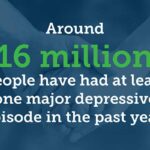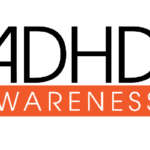Unique Symptoms of ADHD You Might Be Missing
Attention-Deficit/Hyperactivity Disorder (ADHD) is commonly associated with hallmark symptoms like inattention, hyperactivity, and impulsivity. However, many college students and young adults with ADHD experience less obvious symptoms that are often overlooked or mistaken for other mental health issues.
Recognizing these lesser-known signs can be essential for individuals and families navigating the challenges of ADHD, especially as demands increase in college and adult life. In this article, we’ll explore the hidden signs of ADHD that might be affecting academic performance, relationships, and daily functioning.
Anxiety That Masks ADHD Symptoms
It’s not uncommon for ADHD to manifest as anxiety, particularly in young adults and women. This connection often arises because people with ADHD struggle with organization, time management, and concentration, leading to frequent feelings of stress and overwhelm. Many, like a college student diagnosed with ADHD later in life, may initially attribute their symptoms to general anxiety without realizing ADHD could be the root cause. This misinterpretation can delay a proper diagnosis and access to effective treatment.
Tip: If your anxiety seems heightened in structured situations (like class schedules or work deadlines) but improves with a flexible schedule, ADHD might be contributing to your symptoms.
Time Blindness
Time blindness is a lesser-known but common symptom of ADHD that can severely impact daily life. Those with time blindness struggle to perceive the passage of time, leading to chronic lateness, missed deadlines, and difficulty estimating how long tasks will take. This symptom can significantly hinder academic success or job performance, particularly in structured environments that demand punctuality and time management.
Tip: Use a visual timer app like “Time Timer” or “Focus-To-Do” to keep track of tasks and deadlines. Setting alerts can help remind you to check your time progress regularly and stay on track.
Physical Symptoms: Shortness of Breath and Chest Tightness
Physical symptoms like shortness of breath, tightness in the chest, and general restlessness are often linked to anxiety but can also stem from ADHD. These symptoms may surface when individuals are overwhelmed or have difficulty focusing, which leads to physical manifestations of mental stress. College students, already prone to anxiety, may mistake these sensations for stress or panic attacks when, in fact, they could be associated with underlying ADHD.
According to NIMH (National Institute of Mental Health), individuals with ADHD are more likely to experience physical restlessness, which may contribute to chronic muscle tension or respiratory symptoms.
Executive Functioning Challenges: Struggles with Academic and Job Performance
ADHD frequently impacts executive functioning, the brain’s ability to plan, prioritize, and complete tasks. In college students or young professionals, executive dysfunction may show up as missed assignments, procrastination, or challenges in meeting job expectations. The pressure of school and work deadlines can exacerbate these symptoms, creating a cycle of stress and low performance.
Procrastination and Difficulty Starting Tasks
While procrastination is often associated with laziness or lack of motivation, in individuals with ADHD, it typically results from neurological struggles with task initiation and focus. ADHD often makes it difficult to organize or mentally prepare for tasks, which can lead to endless delays and avoidance. College students with ADHD might avoid beginning assignments until the last minute, not due to lack of motivation but because of difficulty with executive functioning.
Tip: Break larger tasks into small, manageable steps and set mini-deadlines for each step. Using planners or apps like “Todoist” or “Asana” can make organization less overwhelming.
Rejection Sensitivity and Emotional Reactivity
Rejection sensitivity is a lesser-known emotional symptom in ADHD that can lead to intense feelings of inadequacy, fear of disapproval, and emotional outbursts. This sensitivity is often heightened by years of facing criticism for behaviors associated with ADHD, such as forgetfulness or impulsivity. Young adults may experience extreme reactions to perceived rejection, which can complicate friendships, academic relationships, and romantic partnerships.
Perfectionism as a Coping Mechanism
To compensate for perceived or real academic or work difficulties, individuals with ADHD might develop perfectionistic tendencies. In many cases, perfectionism becomes a coping strategy to avoid criticism and validate their efforts. This can lead to excessive time spent on tasks, high stress levels, and ultimately, burnout, especially in college environments where the pressure to perform is high.
Tip: Set a timer for each task to limit time spent and remind yourself that “done” is better than “perfect.” Sometimes, “good enough” is just right.
Impulsivity in Financial Choices
Impulsive behaviors associated with ADHD can extend to spending habits. College students and young adults with ADHD may find themselves impulsively buying things or overspending without fully considering the financial impact. This behavior often stems from ADHD’s effect on impulse control and can result in financial stress and regret.
Hyperfocus on Specific Interests
People with ADHD may struggle to focus on necessary tasks, yet experience “hyperfocus” on activities they find interesting. Hyperfocus, a state of intense concentration on specific tasks, often makes people lose track of time and ignore other obligations. While hyperfocus can be advantageous, it can lead to neglect of critical tasks, especially when other academic or work responsibilities are piling up.
Tip: Use hyperfocus strategically by scheduling important tasks during these times. Set reminders to check on other responsibilities so that hyperfocus doesn’t lead to missed deadlines.
Sleep Problems: Difficulty Falling and Staying Asleep
Sleep disturbances are common among people with ADHD. These include difficulty falling asleep, staying asleep, or waking up at the desired time. For students, poor sleep can worsen ADHD symptoms and impact academic performance. College students and young adults with ADHD are often stuck in a cycle where untreated symptoms lead to poor sleep, which then exacerbates ADHD symptoms.
According to NAMI (National Alliance on Mental Illness), up to 75% of adults with ADHD report chronic sleep issues, underscoring the importance of treating ADHD to improve sleep patterns.
Diagnosis and Treatment of ADHD
Diagnosing ADHD in young adults and college students can be challenging because the symptoms can overlap with other conditions, including anxiety and depression. A thorough evaluation by a qualified mental health professional is essential to accurately diagnose and treat ADHD.
Once diagnosed, ADHD treatment typically involves a combination of medication, cognitive-behavioral therapy (CBT), and lifestyle modifications. College students might benefit from organizational coaching, academic accommodations, and self-management strategies to help them meet academic and personal goals.
Frequently Asked Questions (FAQs)
- Can ADHD cause anxiety?
- Yes, many people with ADHD experience anxiety, often because of the stress and frustration caused by ADHD symptoms.
- What is “time blindness” in ADHD?
- Time blindness is an impaired sense of time that makes it difficult to estimate how long tasks will take or to manage time effectively.
- How does rejection sensitivity affect people with ADHD?
- Rejection sensitivity causes intense emotional reactions to perceived criticism or rejection, which can lead to strained relationships.
- Are ADHD symptoms the same for everyone?
- No, ADHD symptoms can vary widely between individuals. Some people experience mainly inattentive symptoms, while others might struggle more with hyperactivity or impulsivity.
- Can perfectionism be related to ADHD?
- Yes, perfectionism can develop as a coping mechanism in people with ADHD, who may try to compensate for their challenges by setting overly high standards.
- How can ADHD affect sleep?
- People with ADHD may struggle with falling asleep, staying asleep, or waking up, often leading to a cycle of fatigue that worsens ADHD symptoms.
Understanding the hidden signs of ADHD can be a game-changer for individuals navigating college and early adulthood. If you or someone you know struggles with symptoms like anxiety, time blindness, or impulsivity, consulting a mental health professional may provide clarity. Early diagnosis and tailored treatment can improve academic performance, personal well-being, and relationships. For those in the Massachusetts area, Novum Psychiatry in Sudbury offers comprehensive psychiatric services to help individuals manage ADHD symptoms and reach their full potential.
Our Experienced Team of Psychiatrists Can Help!
We know that taking the first step can be difficult.
Our highly-trained psychiatrists and therapists offer a comprehensive and confidential approach to private, outpatient psychiatric care. Whether this is your first time seeking psychiatric care or if you are seeking a new provider, Novum Psychiatry can help. In-person and telehealth appointments available. We accept health insurance.
At Novum Psychiatry, we’re here to help you find the right balance between your personal and professional life.
Our outpatient psychiatry services provide accessible, compassionate care for those dealing with the stresses of work. If you’re feeling overwhelmed, consider reaching out for a consultation to explore how we can support you.
The Board-Certified psychiatrists of Novum Psychiatry have extensive experience in the treatment of a wide variety of mental health conditions, so please request your confidential evaluation today.





